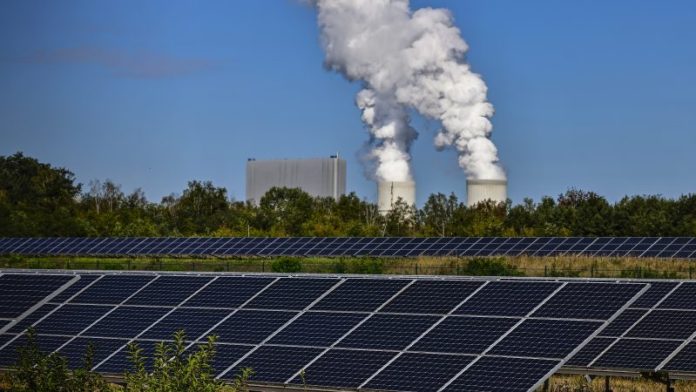The German government’s compromise envisages a radical change in the approach to subsidising renewable energy sources that will encourage the country to shift from coal, according to Euractiv.
Germany’s Renewable Energy Act, drafted in the late 1990s, guarantees owners of wind turbines and solar panels a 20-year high price for electricity fed into the grid. The country quickly became famous for its pioneering energy turnaround (Energiewende).
The paradigm is on the verge of change, the government announced on 5 July amid budgetary tensions and the identified need for backup power generation.
Our goal is an electricity market that ensures a secure, affordable and greenhouse gas-neutral supply of electricity with at least 80% from renewables.
In 2025, the government plans to change two fundamental principles of the renewable energy subsidy scheme. Firstly, no payment will be made for electricity generated during a period of negative prices, when excess capacity is already being fed into the grid. This pushes the EU requirements forward by two years.
Secondly, there is a paradigm shift in how renewables are supported by the state.
The expansion of new renewable energies is to be switched to investment cost subsidies.
Government support is currently linked to electricity generation, ensuring that renewable energy developers can provide a minimum level of income for each unit of energy produced.
Transition to renewables
Renewables lobby group BEE said on Friday:
The experiment of a radical change to investment cost subsidies contains the risk of market uncertainty.
Opposition to the scheme from the free-market party is partly due to its high cost. Subsidising renewable energy would cost “€17 billion, which is the current calculation for next year,” FDP Finance Minister Christian Lindner told a press conference in Berlin on Friday.
However, not everyone is pleased with this agreement to phase out the traditional mechanism, even within the government. MP Nina Scheer, the left-of-centre SPD party’s energy spokeswoman, also expressed dissatisfaction.
From today’s perspective, it is neither feasible nor, strictly speaking, intended to subsidise investment costs, rather only as a test model or laboratory. In my opinion, the model contains obvious investment risks. These must be avoided at all costs.
The transition needs to happen in the coming years to have a meaningful effect, given that the government has also promised to end support for renewables once coal is no longer burned to generate electricity. This will happen in 2038 at the latest.
Protecting coal exit
The second major milestone in Germany’s energy transition will be the construction of new gas-fired power plants, some of which may be fuelled by hydrogen. Robert Habeck, minister of economy and climate action, stated:
The construction of new power plants will secure the coal phase-out.
Within a year, Berlin hopes to offer five gigawatts (GW) of new gas-fired power plants for immediate construction, abandoning plans for a fully hydrogen-ready fleet.
This will be followed by a further five GW of power plants, which will have to be fuelled by hydrogen, but only from their eighth year of operation. Two GW of older gas-fired plants are to be modernised.
It will also build half a GW of specialised hydrogen power plants on day one, as well as another half a GW of long-term energy storage.
The plants will be converted into a “comprehensive, technology-neutral capacity mechanism, which will be operational from 2028.” Andreas Jahn, senior advisor at clean-energy think tank RAP, stated that the plan “represents an important compromise that secures the transformation of the German electricity system.”
All this will require market subsidies, which Brussels has “in principle” given the green light to.
“Following intensive discussions between the Commission services and the German authorities”, the two agreed on “a way forward,” a Commission spokesman reported.
Germany plans to launch the first competitive bidding process at the end of 2024/in early 2025.
